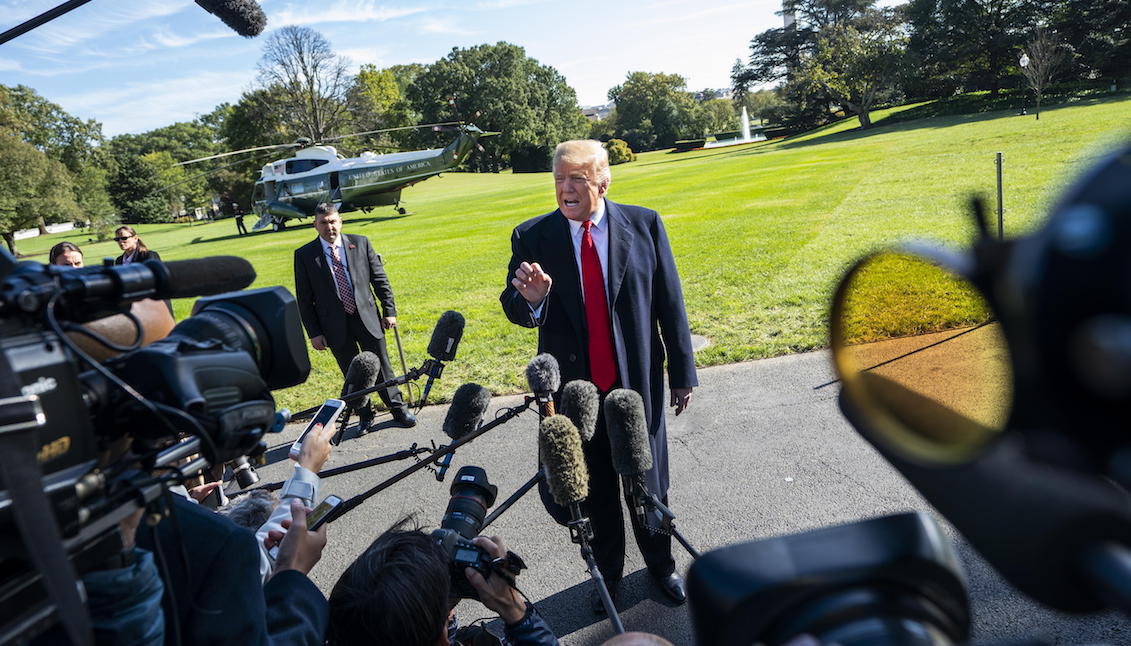
Back to the Cold War?
Trump announced during the weekend that the United States would withdraw from the historic Treaty of Intermediate Nuclear Forces with Russia, arguing that the…
Amid criticism for the complacency of his government to foreign regimes such as Saudi Arabia, the government of Donald Trump has decided to strike a blow to democratic agreements with Russia.
On Sunday, President Trump confirmed that he would withdraw the United States from an arms control agreement with Russia that ended the Cold War and that has kept nuclear missiles out of Europe for three decades, the Guardian explained.
The president was referring to the Intermediate-range Nuclear Forces Treaty (INF), signed on December 7, 1987, between Presidents Ronald Reagan and Mikhail Gorbachev, which ended with all the ballistic and cruise missiles in Europe with ranges between 500 and 5,000 kilometers, explained the BBC.
In the same way, the treaty put an end to an arduous arms race that threatened the stability of the planet and thus avoided the constant bilateral threats after the Second World War, proposing the elimination of nuclear missiles and not only establishing a limit on their production.
Although previous governments had contemplated withdrawing from the agreement, the risk of triggering new arms competition between world powers prevented Barack Obama, for example, from making a final decision.
All this has changed with the decision of the Administration to withdraw definitively from the agreement under the argument that "Russia has been violating the treaty for years".
"Russia has violated the agreement. They have been violating it for many years," Trump said Saturday after a rally in Elko, Nevada. "And we’re not going to let them violate a nuclear agreement and go out and do weapons and we’re not allowed to. We’re the ones that have stayed in the agreement and we’ve honored the agreement but Russia has not unfortunately honored the agreement so we’re going to terminate the agreement, we’re going to pull out.”
RELATED CONTENT
The decision was presumably led by national security adviser John Bolton, who has frequently opposed this type of treaty arguing that it diminishes the strength of the United States in foreign relationships, especially in the rivalry with China and the Pacific.
"This is the most serious crisis in nuclear arms control since the 1980s," said Malcolm Chalmers, deputy director general of the Royal United Services Institute to The Guardian. "If the INF treaty collapses, and with the New Start treaty on strategic arms due to expire in 2021, the world could be left without any limits on the nuclear arsenals of nuclear states for the first time since 1972."
But something is certain and is that Russia has violated the treaty since, at least, 2014. Only last year, the vice president of the Joint Chiefs of Staff testified that "the Russians had deployed forbidden missiles on the test site of Kasputin Yar and in another location in Russia," explained The Atlantic.
Organizations such as NATO have repeatedly discussed the Russian violations of the agreement, which has led governments such as the British to support the decisions taken by the Trump government when trying to counteract the Russian hypocrisy.
However, starting a new arms race will only rekindle the classic tensions of the Cold War and hinder the agreements that have guaranteed world peace after the great conflicts of the 20th century.











LEAVE A COMMENT: